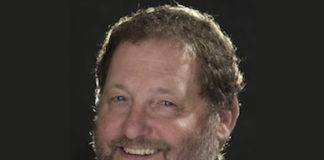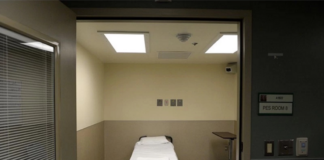Tag: coercion
Service Users Report Psychiatric Professionals as the Least Helpful Factor in...
A new study published in Psychology and Psychotherapy: Theory, Research and Practice finds that psychiatrists and other doctors are the most unhelpful factor for...
Measuring How Mental Health Professionals See Service Users’ Rights
A new scale has been developed and validated to examine beliefs held by mental health professionals towards service users’ rights.
Refugees and Immigrants Experience Increased Medical Coercion
Refugees and first-generation immigrants of African descent are at greater risk of experiencing medical coercion when compared to immigrants of other visible minority communities in Canada.
Humanizing Mental Healthcare by Reducing Coercive Practices
A review of the literature demonstrates that coercive practices lack empirical support and violate human rights.
Study Identifies Psychiatric Patients at Greatest Risk of Coercion
In an effort to reduce coercion, researchers isolate associated factors including age, relationship status, location, and diagnosis.
Changing Law That Lets Mentally Ill Stay on the Streets
From the San Francisco Chronicle: San Francisco city officials are hoping to change the law that allows homeless individuals with mental health diagnoses to stay on...
Voluntary Psychiatric Patients May Face Exploitation
From WFAA: Many patients who check themselves into psychiatric hospitals voluntarily may have difficulty when attempting to check out. In one recent incident in Denton,...
Olga Runciman: Moving Beyond Psychiatry
This week on the Mad in America podcast we interview Olga Runciman. Olga is an international trainer and speaker, writer, campaigner, and artist. In this interview, we discuss Olga’s professional and personal experiences of the psychiatric system and how she now helps and supports healing and recovery in others.
Using Participatory Action in Bioethics Research
Participatory action approaches in bioethics research used to decrease coercion and seclusion in psychiatric treatment.
Proove Biosciences Sells Off Assets as CEO Departs
From STAT: Proove Biosciences, which sold dubious DNA tests to predict opioid addiction risk, has been placed into court-ordered receivership for restructuring and asset sale. Experts...
Criticism of Coercion and Forced Treatment in Psychiatry
A recent editorial, published in BMJ, argues there is an increase in coercive measures in psychiatry that are damaging to individuals diagnosed with mental illness.
“Maybe You Need Meds”: From Passive Patient to Finding My Voice
I made journaling non-negotiable. I started sitting in nature and running trails. I practiced being present and prioritized sleep. These things are often seen as what you do if your problems aren’t really that bad. But to me, these are the things I do to save myself every day.
Mo Hannah: Changing the Teaching of the Biological Model
Maureen Hannah, a Professor of Psychology at Siena College, New York, tells of experiences with the psychiatric system, both personally and professionally, and how poor care in the mental health system led to an unexpected and devastating family loss.
Jim Gottstein: Patient Rights in Mental Healthcare
Jim Gottstein, president and founder of the organisation Law Project for Psychiatric Rights, talks about his own experiences with the psychiatric system, patient rights in mental healthcare and the recent trial between Wendy Dolin and the UK Pharmaceutical manufacturer GlaxoSmithKline.
Remembering the Murder You Didn’t Commit
In this piece for The New Yorker, Rachel Aviv investigates how a psychologist and deputy sheriff convinced several suspects that they committed a murder, for which...
Human Right to Health – More than Economic Justice
Something is lost, a great deal is lost, when we give up an independent advocacy platform about our own bodies and subsume our needs and rights into what medical professionals are motivated to fight for on our behalf.
New UN Report: Steps Forward, But No End to Impunity
Dainius Pūras, UN Special Rapporteur on Health, has issued a groundbreaking new report critiquing biopsychiatry and its reliance on coercion, yet he pulls his punches, most unforgivably by treating the obligation to end coercive practices as a matter for gradual rather than immediate implementation.
Infamous 1960s Study Repeated: How far Would you go to Obey?
From Live Science: Stanley Milgram's infamous experiments on the science of obedience to authority figures were recently repeated with very similar results. Participants showed a high...
Is Facebook a Structural Threat to Free Society?
From TruthHawk: Facebook's technology has an unprecedented ability to surveil and manipulate people.
Article →
I was Forced to Choose Between an Abortion or a Mental...
In this personal essay for MarieClaire, one woman shares her story of being locked up in a mental hospital for refusing to have an abortion.
The Helping Room
Every culture has its share of individuals who break down in bewilderment. People who hallucinate, behave beyond norms, seek to die, think in strange ways.
The Mental Health Reform Act of 2016 (SB 2680) Would Be...
There is indeed a crisis in the mental health business. The crisis derives from psychiatry's spurious and self-serving premise that all significant problems of thinking, feeling, and/or behaving are brain illnesses that are correctable by psychiatric drugs.
Dear Boston Globe, Part IV: A Taste of Your Own Medicine
The Boston Globe paints a picture (in the vivid way that they so love to do) that pins the system’s decline primarily on budgetary issues, but there is more than one way for a system to be ‘broken.’ In fact, where the Globe goes most wrong in their latest piece, ‘Community Care,’ is in their failure to adequately recognize that the system has always been broken in one way or another in this country.
A Diluted Murphy Bill Clears the House and Goes to the...
Organized psychiatry, committed irrevocably and wholeheartedly to drug pushing and to their corrupt and corrupting relationship with pharma, simply will not countenance the fact that their primary product is fundamentally flawed and destructive. So they hire a PR company; they fund and lobby politicians; they parrot slogans; and they encourage one another to ever-increasing heights of self-congratulation. But they will not commission a definitive study to clarify and assess the scale of this problem once and for all. And the reason for this inaction is because they know that it would be bad for business. It would "cause a lot of people to stop taking their medications."
Sadness: The Problem and The Solution
There is an ever-narrowing bandwidth of behavior that supports the dominant narrative in our culture today. We all need to act a certain way to protect the foundational beliefs of our time – that “science” has it all figured out, that rules keep us safe, and that it’s us vs. them (insert germs, terrorists, pests, and other “enemies”). But what are the consequences of this? What is this sadness and where does it go if we bandage our consciousness with business, medication, substances, or general avoidance of our real human experience?































